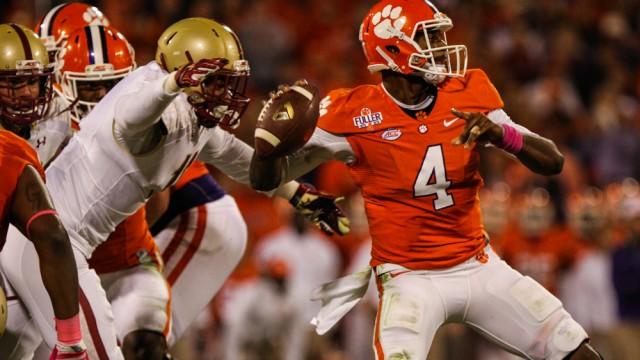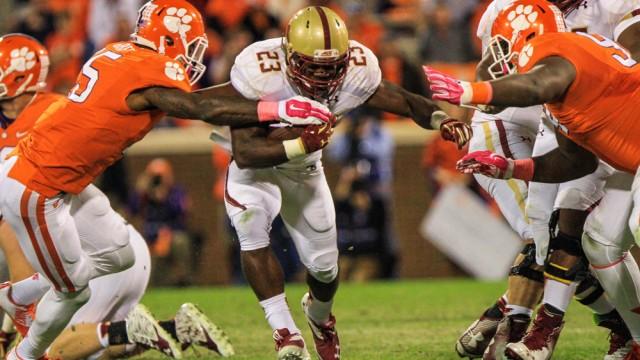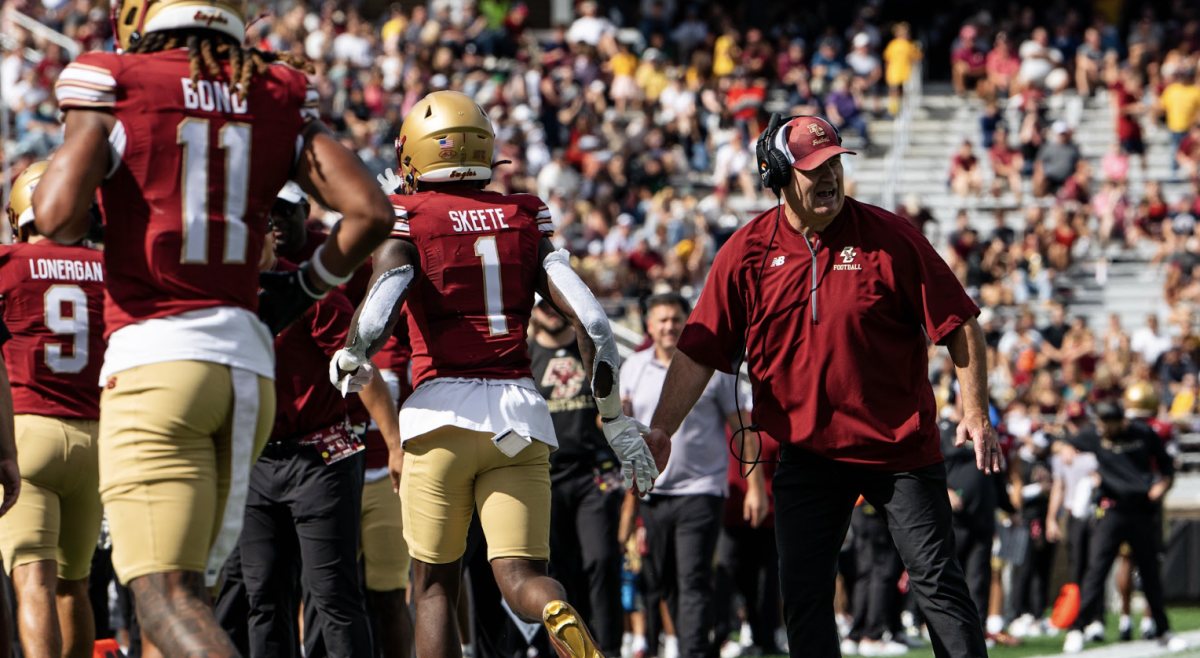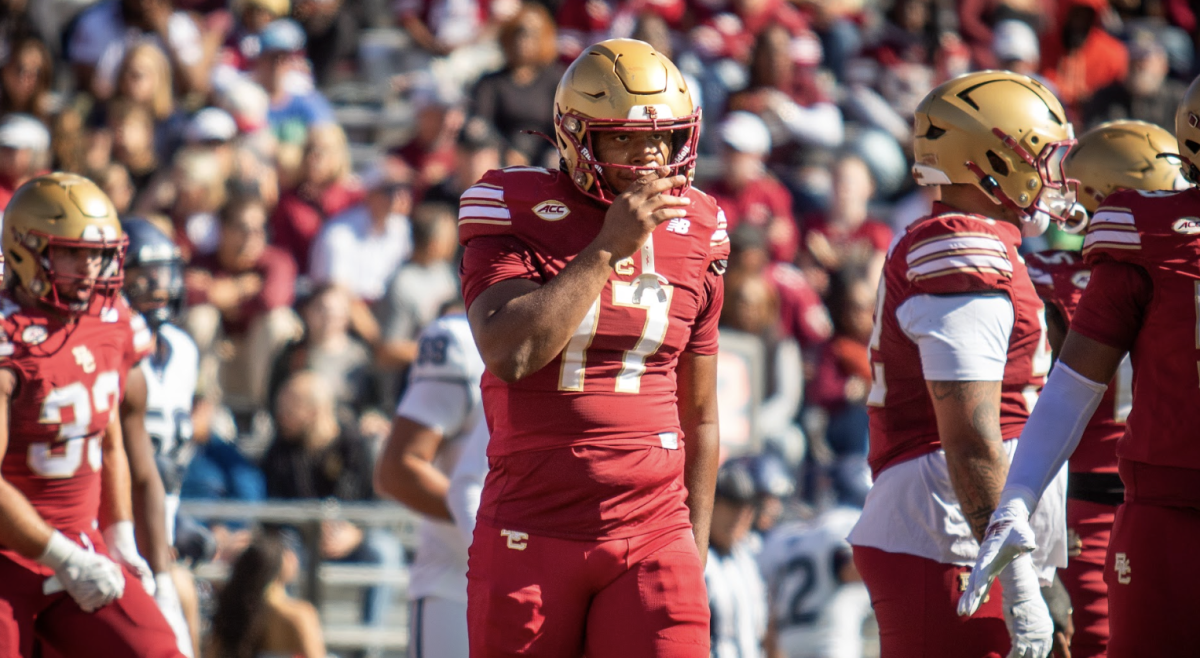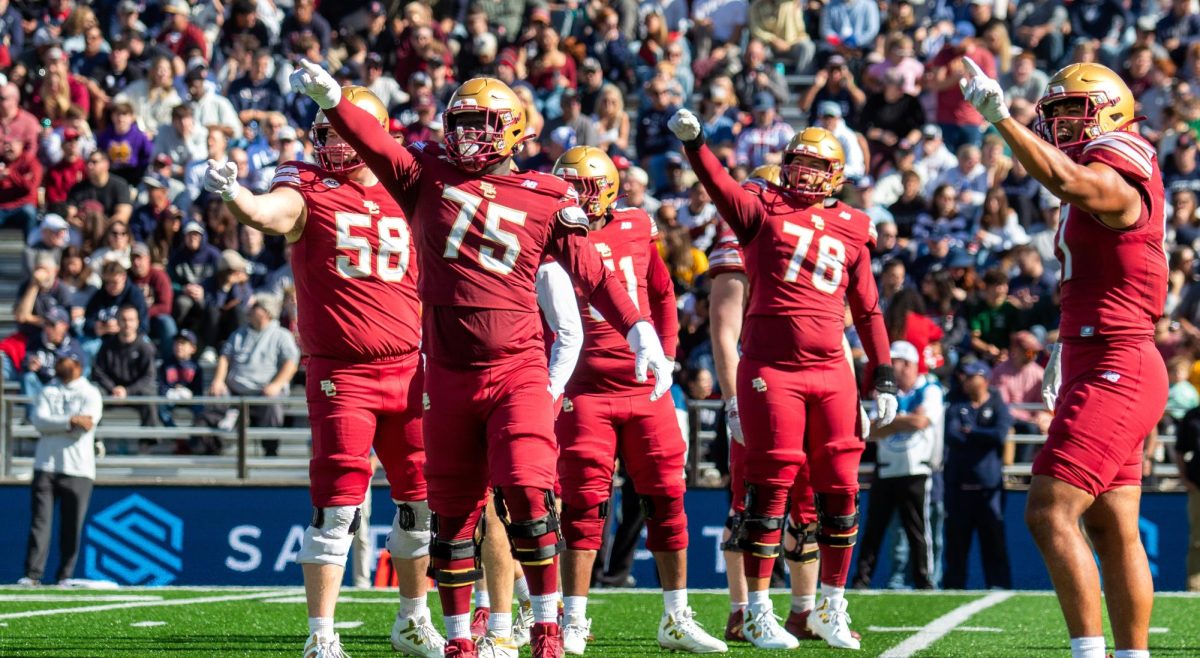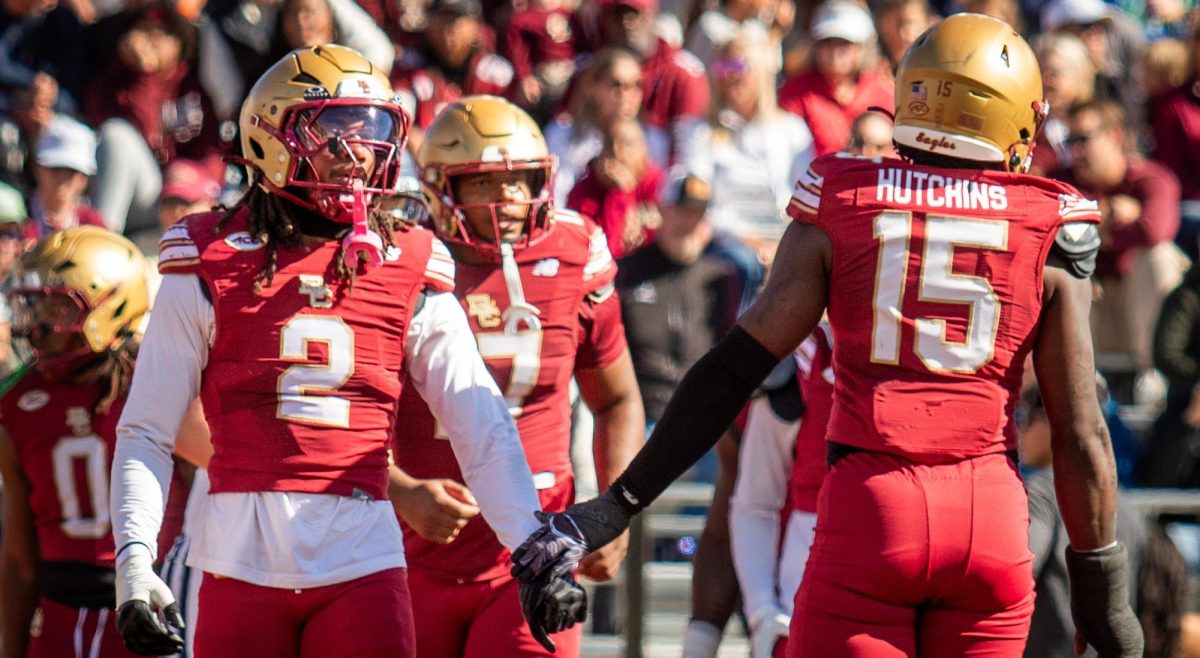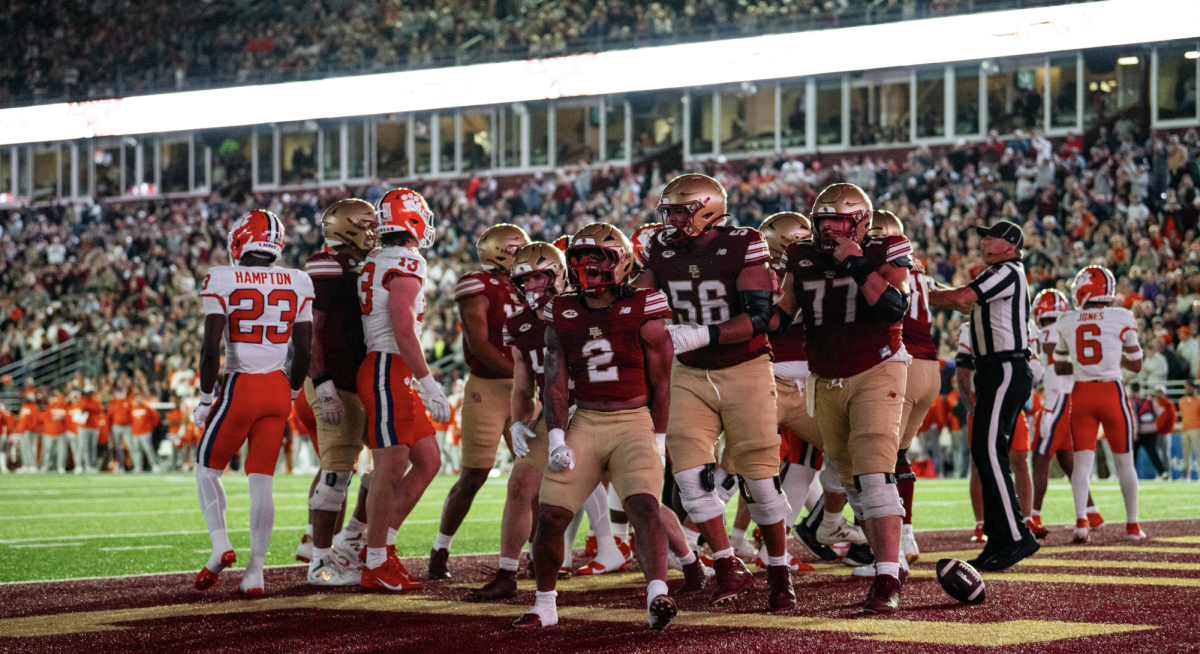“I don’t think there’s any justifying a loss.”
–Justin Simmons
CLEMSON, S.C.—What does Boston College have to do to get some Southern hospitality in the Carolinas?
After losing a potential game-winning touchdown in the Duke game two weeks ago—a touchdown catch by Thadd Smith that wasn’t—the referees once again played a hand in a 34-17 defeat to No. 5 Clemson University (6-0, 3-0 ACC). The Eagles (3-4, 0-4 ACC) couldn’t stop the flags from flying: eight penalties amassed 80 yards.
Blaming the zebras would be too easy. Look at the plays that followed each massive penalty, and you’ll see a team that was simply outmanned, outmatched, and outsmarted by the ACC’s best hope for the College Football Playoff.
The first miscue came in the first quarter, after the Eagles took an early 7-0 lead on a pass by Jeff Smith to Bobby Wolford, set up by a Justin Simmons interception. BC’s defense stood tall, seemingly forcing a three-and-out highlighted by Steven Daniels sack. On the ensuing punt, however, Harrison Jackson was called for roughing the kicker—a 15-yard penalty that just as easily could’ve been called running the kicker, a 5-yard penalty—extending Clemson’s drive and keeping the defense on the field.
But that’s not why the Tigers scored.
On the play immediately following the Jackson penalty, Clemson quarterback Deshaun Watson quickly dumped a pass off to Artavis Scott, who torched the Eagles’ secondary for a 50-yard gain. That play set up Clemson’s first score, a quick run by Watson three plays later.
Later in the second quarter, the Eagles looked to stall a Tiger drive around their own 30. Kamrin Moore got called for pass interference on third down, again moving the chains.
But that’s not why the Tigers scored.
Watson masterfully sliced up the BC secondary, charging another 50 yards through the air, mostly on long, slant route passes to Scott, before finding Zak Brooks on the outside for a 21-yard score and a 17-7 lead.
Later on in the third, down 20-10, the Eagles looked poised to flip the field and put Smith in excellent position to get another score after Alex Howell’s punt trapped Watson and Co. at their own 2-yard line. John Johnson couldn’t contain himself to the refs’ liking on 3rd-and-8, pushing the ball up to the 24.
You guessed it. That isn’t why the Tigers scored, either.
Immediately after, Watson found Scott for a 33-yard gain. Two plays after that, Scott found open space on the outside, dashing 51 yards right in the face of Steve Addazio and the BC bench. That touchdown essentially sealed the game.
Addazio, who touted how hard his team played against this incredibly tough Clemson group, admitted those penalties could’ve been the difference in a game in which BC started strong.
“You take away a few of those third down penalties, I think we’re right in this thing,” Addazio said. “I’m not trying to make lemonade here, I’m just telling you that’s how I felt, and I think I’m accurate in saying that.”
It’s a fair enough point from the beleaguered coach of a team that now drops to last in the Atlantic Division and falls under .500 for the first time since Oct. 26, 2013 following a loss to North Carolina. But penalties alone don’t give a pass to a secondary that was consistently burned on big plays to the outside and now has questions to answer before facing Louisville next week.
Watson did put up his second-best career performance despite the two picks: 420 yards, 27 completions on 41 attempts, and three touchdowns through the air and one on the ground. By comparison, the Eagles allowed 423 yards to Florida State’s Everett Golson, Duke’s Thomas Sirk, and Wake Forest’s John Wolford combined. It also doubles the amount of touchdowns Don Brown’s defense has allowed all season.
Realistically, there’s nothing more this defense could’ve done to help BC’s offense against Brent Venables’ fearsome defensive front, led by Shaq Lawson and Carlos Watkins. The Eagles gained a mere 246 yards, a majority of which came from the feet of Myles Willis. The junior back, seeing his first game action since week four against Northern Illinois, provided a spark to this offense—Willis gained 88 yards, one shy of his career high set last year against Southern California.
To his credit, Smith, BC’s first true freshman starting quarterback since Chase Rettig in 2010, had a decent game: 7-22 through the air for a touchdown, and 13 yards on the ground for a touchdown in seven attempts. All things considered—confusion with the two-QB system over the last couple of weeks and this dominating Clemson defense—those are good numbers. His only glaring weakness skillwise is creating plays when rolling out—on many occasions, that was forced by the offensive line collapsing. But Smith does far better passing from the pocket than on the run, something the play calling currently does not reflect.
And, once again, Addazio didn’t do his offense any favors, struggling with time management in the two-minute drill. Set up at Clemson’s 40 following Daniels’ interception with 1:17 and all three timeouts remaining, the Eagles started with a run that went nowhere. Thirty seconds ticked off the clock before the Eagles snapped their second-down play, an incomplete pass. Despite a time stoppage, Addazio used two consecutive timeouts on third-and-long—the head coach blamed the second timeout on a “personnel deal.” That became even more of a problem when the Eagles did convert on a 3rd-and-11, with a pass to Thadd Smith. That set up a slowly developing run play that brought BC to the 2-yard line. Instead of taking a couple of shots at the end zone through the air, Addazio played conservatively, opting for the chip shot field goal. “We’re too young right now to operate cutting real close like that,” Addazio said.
Regardless, the incredibly young offense took a slight nudge forward, as Addazio reiterated countless times, something that can’t be said about BC’s previous three ACC games. A lot of that has to do with the decision to stick with one quarterback and the return of Willis, one of the team’s most electric playmakers.
“I was hoping my return could get us back in the win column,” Willis said. “We’re growing up, but we’re not growing up fast. We have a lot of seniors on the defensive side of the ball, and I want to win for them.”
And for a defense that, after carrying this team for six weeks, finally showed its holes against one of the nation’s best teams, the Eagles’ offense will need to grow up fast if they want to dream about playing in a bowl this December, or at least hope they return to the win column.
Featured Image by Drew Hoo / Heights Editor

